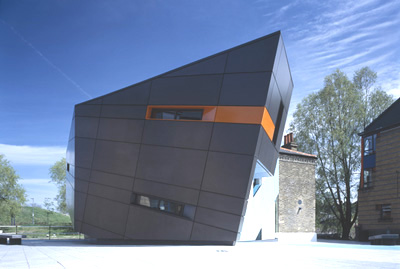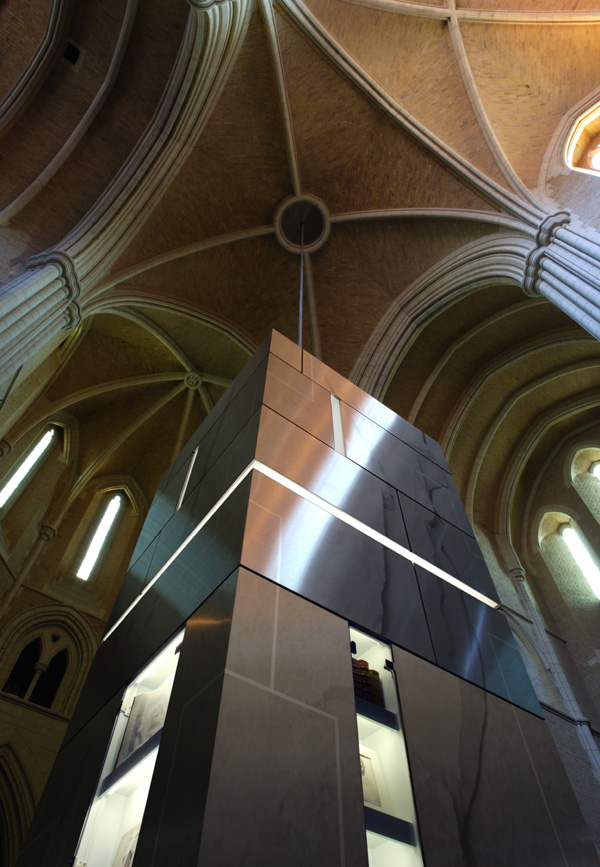The next interview for my research into Perceptions of Coaching in the UK Creative Industries was with Richard Scott, founding Director of Surface Architects. Surface was formed by Richard in 1996, in collaboration with philosopher Jeremy Weate and architect Kristen Whittle. Their first project ‘Soft-space’ won first prize in the Shinkenchiku-Sha Residential Design Award in Japan and ‘Aquaphilia’ was one of the ‘Ideal Rooms’ exhibited at the RIBA in 1997. At this time Richard worked for Will Alsop and taught History & Theory at the Bartlett and the AA with Jeremy Weate.
From 1999, Richard concentrated on Surface, winning a competition for the headquarters for new media company Razorfish. Surface’s next project was to be their largest to date. The £6M South Eastern European University in Macedonia was designed and constructed in 10 months, using pre-fabrication.
Andy MacFee, who was the project architect for Will Alsop’s Peckham Library, joined Surface in 2001 as director. Richard and Andy’s work together aims at the emergence or ‘surfacing’ of new experimental possibilities, promoting an architecture of rich experience.
Surface were the highest placed British practice (third) in the Building Design/Corus Young Architect of the Year Award 2004 and were third again in 2005. Significant built projects for Queen Mary, University of London have brought the practice critical recognition.
Richard gave a fascinating interview, vividly illustrating the ‘continuity between organisation and aesthetics’ in the connections between his conversational style of management and the experimental creative process at Surface.
To showcase Surface’s distinctive architectural style, I’ve included larger images in this blog post – click on the images above to see the large versions. The second image is the ‘ambiguous object’ we discuss during the interview.
Look out for more interviews in this series in the next few weeks.
Click the ‘AUDIO MP3’ icon below to hear the interview.


